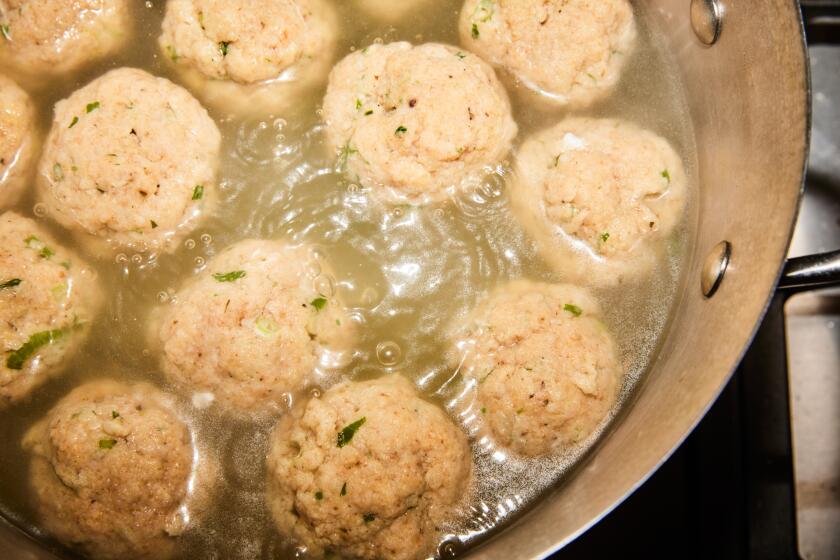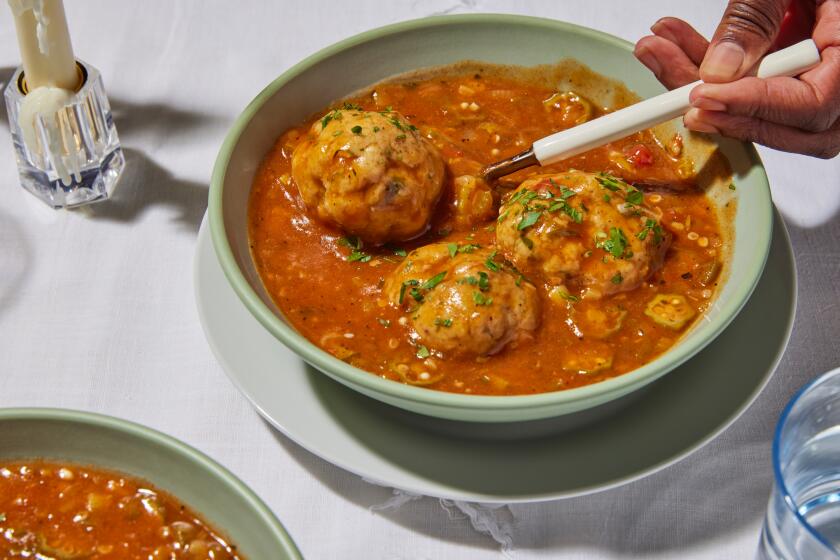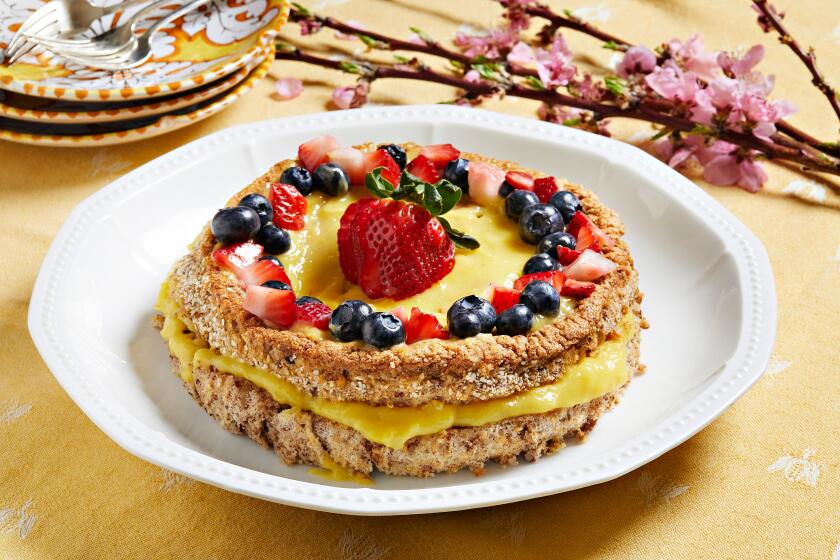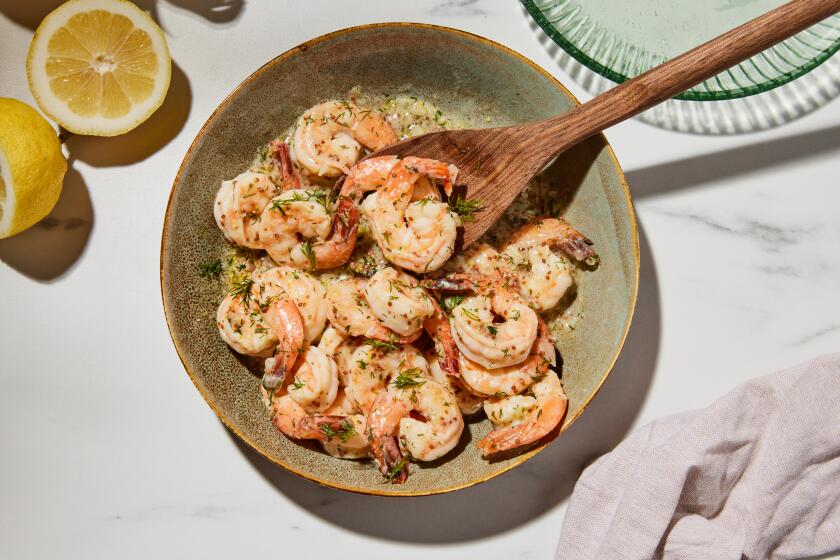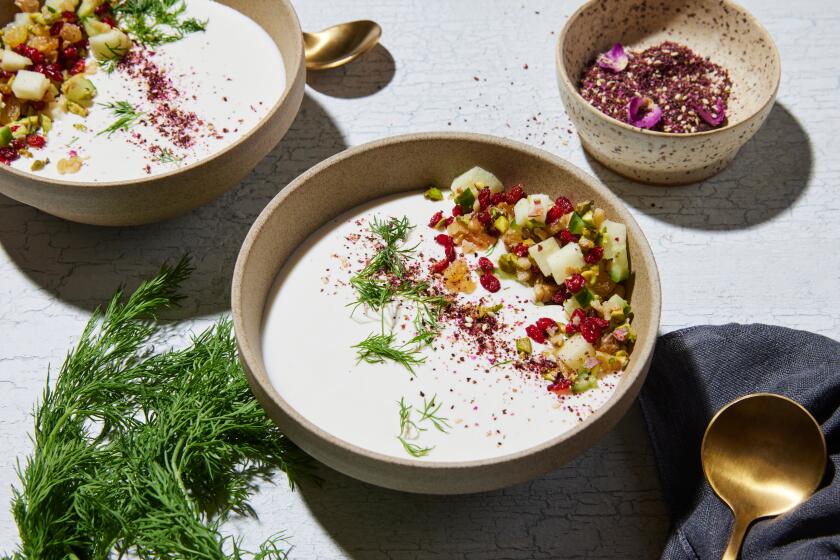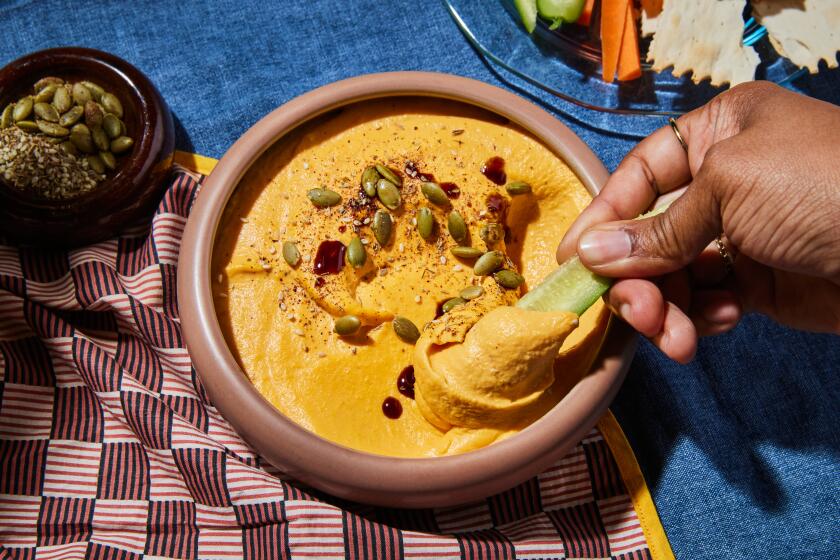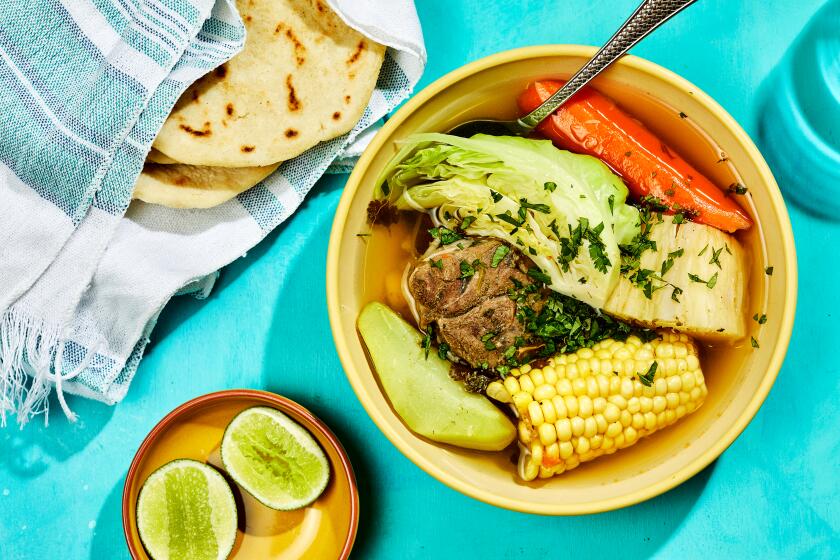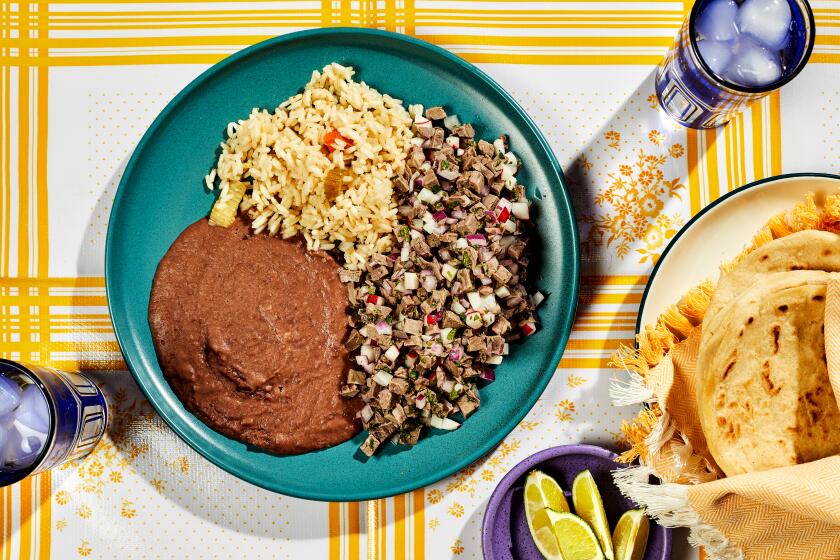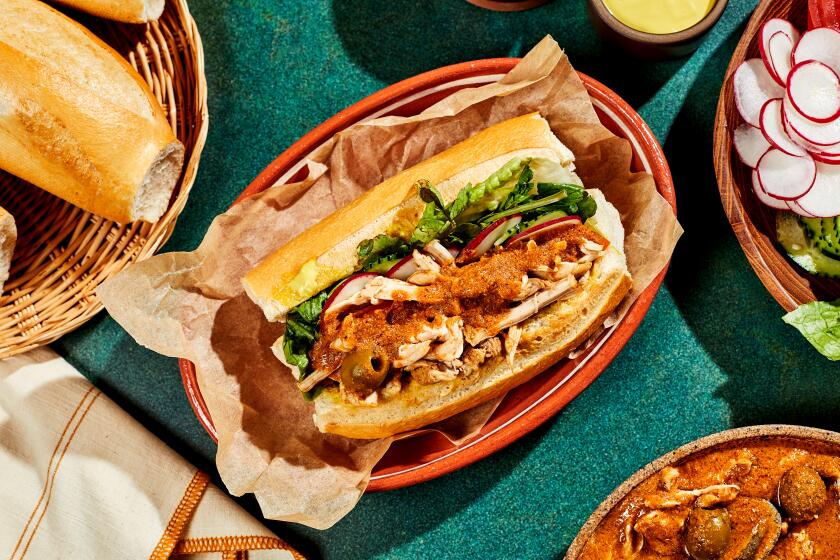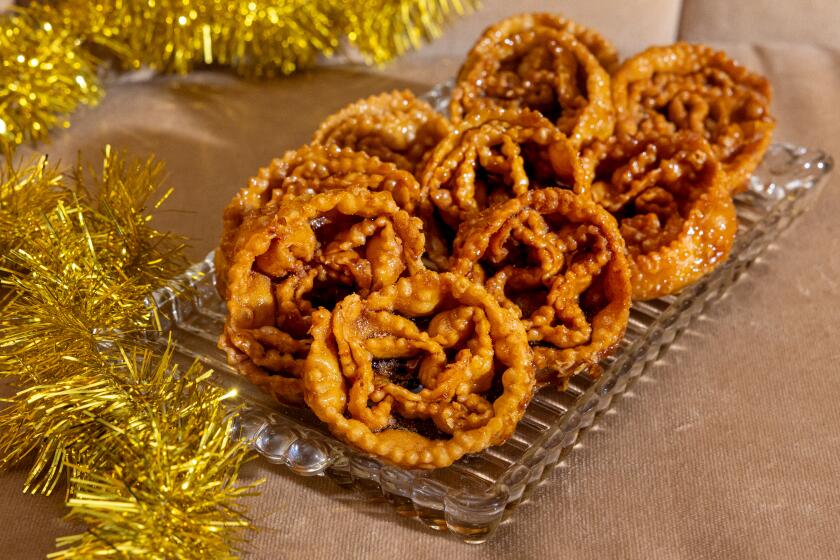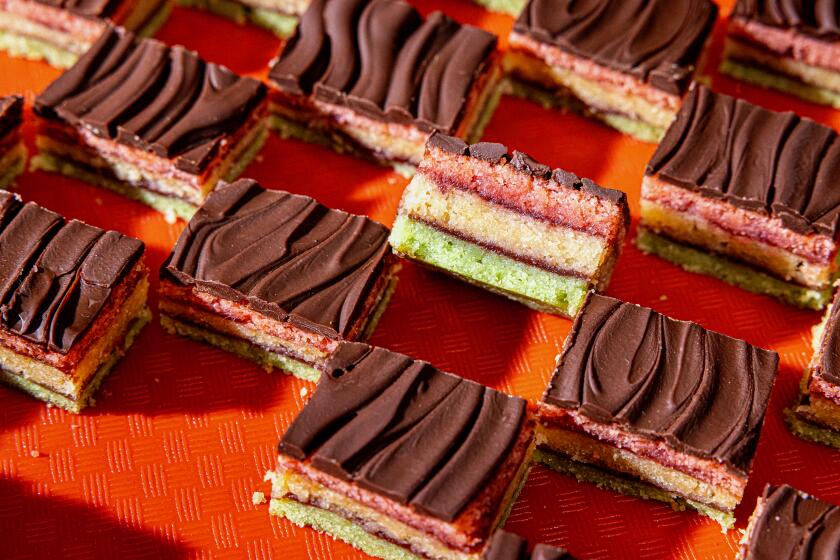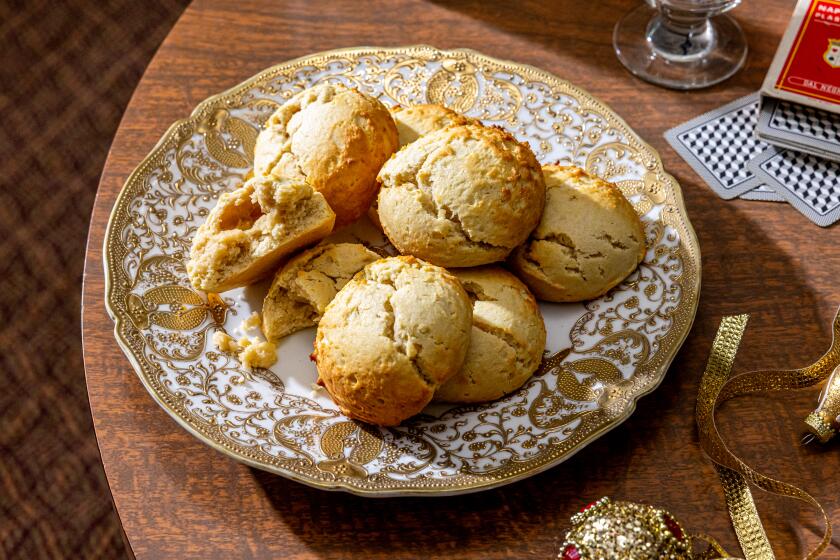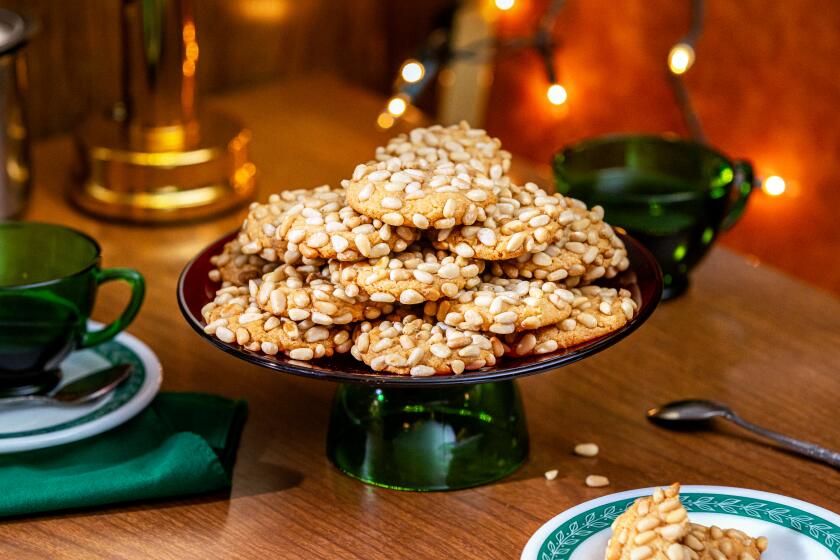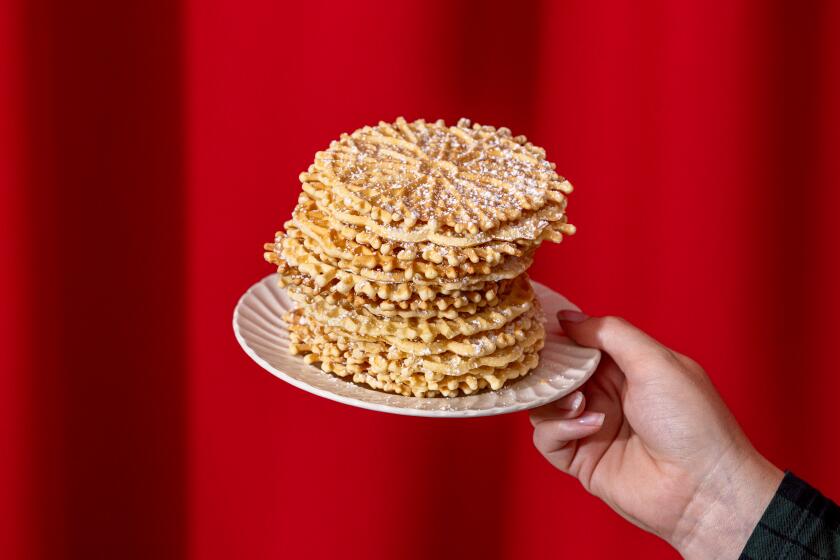Coffee granita
You’d think granita would be a regular summertime craze, particularly around here, with our wealth of summer fruit. It’s cold and sweet, lighter than ice cream, easier to make than sorbet and just darned pretty to look at. You don’t even need any special equipment for it -- a baking dish, a freezing compartment and a fork will do the job.
The Italian name means “grainy,” because the fruit juice or other liquid is broken up several times as it freezes, creating a texture like coarse sand. It’s traditional to serve granita in a glass bowl or goblet so you can enjoy its color and the alluring glitter of the ice crystals.
But not only is granita far from common in this country, it seems never to have been the subject of a book in English. Until now, that is.
The book is “GranitaMagic” (Artisan, $15), which gives 55 granita recipes. Alongside the traditional fruit and coffee versions are exotic vegetable granitas (usually intended as garnishes, such as the horseradish granita), herb and flower granitas and a few involving wine (which should be broken up at the last minute, since alcohol retards freezing).
The author is Nadia Roden, whose last name might ring a bell. She’s the daughter of Claudia Roden, the London-based author of books on Jewish and Mediterranean food, and there are a few signs of the relationship in the new book, such as a recipe for frozen gazpacho.
The younger Roden is a painter and designer based in New York; she has created textile designs for the Guggenheim, the Metropolitan Opera and Neiman Marcus, among other clients. Her book is charmingly illustrated with what are, in effect, fabric patterns based on granita ingredients -- lemongrass lengths alternating with cross-sections; spirals of blueberries; strawberries alternating with heart shapes -- rendered in the loose, whimsical, lyrical style of 1950s textile designers such as Lucienne Day.
The result is a delightful book on an irresistible subject.
If you have an espresso machine, make 2 1/2 cups of extra-strong espresso. If not, put the water in a saucepan, add the coffee grounds, bring to a boil and immediately turn off the heat.
Add the lemon zest to the coffee and allow it to infuse for 5 minutes. Strain (through a coffee filter, if you aren’t using an espresso machine). Mix in the sugar while the coffee is still warm. Stir in the lemon juice.
Freeze the mixture and follow the four-time scraping and freezing process described in the star anise and grapefruit granita recipe. Serve with whipped cream, if desired.
Get our Cooking newsletter.
Your roundup of inspiring recipes and kitchen tricks.
You may occasionally receive promotional content from the Los Angeles Times.

